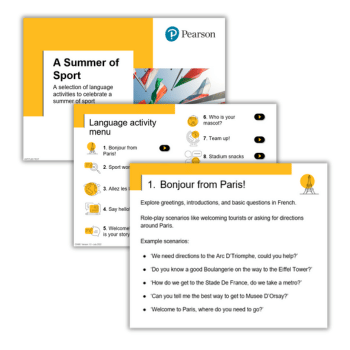MFL and beyond – Why learning Japanese helps our students stand out

Dafydd Francis describes how learning Japanese can help drive student engagement with modern languages – and why getting started isn’t as hard as you might think…

Reading the government’s curriculum research review series on languages this past summer, I was saddened to see Japanese among those languages that have declined at GCSE. I am, however, delighted to report that here at Ninestiles, An Academy (part of the Summit Learning Trust), we’re bucking the trend.
We initially offered Japanese as an extracurricular activity a number of years ago, on behalf of one student with SEND who was particularly interested in the Japanese language and culture. At Ninestiles we’re committed to encouraging students to pursue their passions, so were happy to facilitate a Japanese Club in order to allow him to develop this interest.
We soon saw other students asking to join, some of whom it turned out had already been learning Japanese in their own time – their love of Manga and anime motivating and spurring them on to understand the language.
Japanese basics
In 2019 the school applied for a grant from the Japan Foundation to help to set up a Beginners’ Japanese Club, which we proceeded to run weekly during term time throughout the academic year. The sessions were led by a specialist Japanese tutor, and saw students begin learning the basics of the Japanese language.
Those attending were also given insights into wider Japanese culture, geography and history, so that in addition to practising writing hiragana and calligraphy, they were able to, for example, make rice balls in our food tech rooms.
After a small cohort expressed wanting to continue their studies at GCSE level we were again kindly given financial support from the Japan Foundation, and now have eight students in Y10 who are due to sit their Japanese exams at the end of this academic year – most of whom are also studying GCSE French or Spanish.
Due to the overwhelmingly positive feedback from students since introducing Japanese at Ninestiles, we now run the club for Y8 – and it’s so oversubscribed that there’s currently a waiting list for places!
International cultural exchange
I’d strongly recommend that other MFL teachers investigate the work of the Japan Foundation for themselves, since they’ve been such a help to us. Its primary function is to promote international cultural exchange between Japan and the rest of the world, and provide financial support for a range of international cultural exchange programmes.
The Foundation runs school taster sessions via its Japanese Taster for Schools (JTS) Programme, allowing teachers and students to discover first- hand what it’s like to learn the language in practice, at which volunteers will introduce the fundamentals of Japanese language, such as counting and greetings, in a fun and interactive manner.
I believe that learning Japanese helps our students stand out, since it’s still somewhat unusual for young people in the UK to study non-European languages. Learning Japanese could also be a great career asset, given that Japan remains one of the world’s largest economies, and is home to numerous highly successful companies, such as Toyota, Honda, Sony, Toshiba and Panasonic.
Ikimasho!
Japanese may be predominantly spoken in Japan, but is increasingly being heard across the globe, with nearly 36 million people learning it worldwide. That so many people are choosing to learn Japanese should help to allay the fears of those who might like to try it themselves, but assume doing so will be too difficult.
It can certainly seem very different at first to other European languages one might have previously studied, but in some ways it can actually be simpler. There are no genders for nouns, for instance, and word order within the language can be flexible.
I hope our success in encouraging students to get excited about learning Japanese will inspire other schools to look into setting up similar clubs of their own – and that the next curriculum research review series on languages will see the number of students taking Japanese at GCSE on the up…
Dafydd Francis is the head of MFL at Ninestiles, An Academy in Birmingham, and a modern languages tutor at the University of Birmingham; follow him at @dfrancismfl











